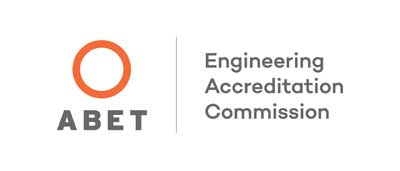Accredited by the Engineering Accreditation Commission(s) of ABET, http://www.abet.org, under the General Criteria and the Industrial and Similarly Named Engineering Program Criteria.

Industrial engineering contributes to the management decision-making process. It is concerned with the optimal utilization of integrated systems of people, methods, materials, machines, and energy to achieve organizational goals. In the application of principles and methods of engineering analysis and design, it is distinguished from other engineering disciplines in its concern with problems which involve human effort and energy, production systems, economy in the use of money, materials and time, and a high utilization of the social sciences.
Typical duties of an industrial engineer include:
- Review production schedules, engineering specifications, process flows, and other information to understand manufacturing and service methods and activities
- Determine how to manufacture parts or products or deliver services with maximum efficiency
- Develop management control systems to make financial planning and cost analysis more efficient
- Implement quality control procedures to resolve production problems or minimize costs
- Work with customers and management to develop standards for design and production
- Design control systems to coordinate activities and production planning to ensure that products meet quality standards
- Consult with clients about product specifications, vendors about purchases, management personnel about manufacturing capabilities, and staff about the status of projects
Industrial Engineering Degree Requirements
Career Potential in Industrial Engineering
The median annual wage for industrial engineers was $87,040 in May 2018. The median wage is the wage at which half the workers in an occupation earned more than that amount and half earned less. The lowest 10% earned less than $56,470, and the highest 10% earned more than $132,340.
In May 2018, the median annual wages for industrial engineers in the top industries in which they worked were as follows:
| Professional, scientific, and technical services | $94,870 |
| Computer and electronic product manufacturing | $93,760 |
| Transportation equipment manufacturing | $89,530 |
| Machinery manufacturing | $80,670 |
| Fabricated metal product manufacturing | $75,080 |
Most industrial engineers work full time. Depending upon the projects in which these engineers are engaged, and the industries in which the projects are taking place, hours may vary.
Bureau of Labor Statistics, U.S. Department of Labor, Occupational Outlook Handbook, Industrial Engineers, on the internet at https://www.bls.gov/ooh/architecture-and-engineering/industrial-engineers.htm (visited November 19, 2019).
INDUSTRIAL ENGINEERING, BS MAJOR IN
Loading...